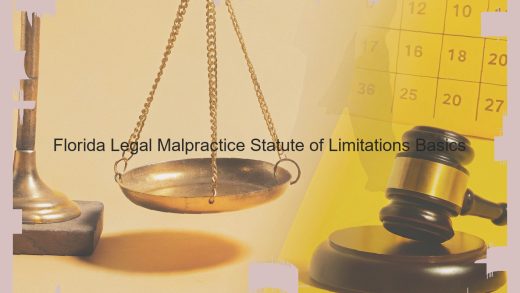Lemon Law Introduction
When a person buys a burger and finds it to be hard, stale, and inedible, the problem is quick, obvious, and easily fixable. If you buy a shiny new car and discover it suffers from a persistent engine defect, the problem is not as easy to identify or fix, and the law provides protections—not just for the consumer, but also for the car manufacturer.
When a new, or even used, vehicle has a defect that affects its ability to operate safely, the law affords consumers, like you, certain rights and options. The law, called the "lemon law," provides that if the new vehicle repeatedly fails to repair its defect or nonconformities after a reasonable number of attempts, the car manufacturer must replace the vehicle or rebate you the purchase price. A lemon vehicle in Indiana is one exceeding the following:
A defect or non-conformity: a defect, complaint, or condition that substantially impairs the vehicle’s use, market value, or safety if it is not repaired during the warranty terms of the vehicle. This may include defects not covered under the manufacturer’s warranty, if that defect causes a safety risk . However, it is important to note that Indiana’s lemon law does not cover defects and problems from normal wear and tear and is limited to those that impair the safety of the vehicle, or the vehicle’s use.
A reasonable number of attempts: The law provides that a reasonable number of attempts occurs if the manufacturer has had an opportunity to repair the defect or non-conformity three times, without success. However, if you are without the use of the vehicle for thirty days or more, that also constitutes a reasonable number of attempts so long as you gave the manufacturer the chance to fix the problem, and it still was not fixed.
The lemon law provides consumers with certain rights and options under Indiana law when they purchase a new or used vehicle that has a defect that leaves the vehicle inoperable, unsafe, or unfit for use. It is an important law because it ensures that you are protected under state law when you purchase a vehicle that has a defect that is not fixed after a reasonable number of attempts.
Lemon Law Eligibility in Indiana
For the purposes of the Lemon Law, a "vehicle" is defined as a passenger motor vehicle that is:
• Purchased or leased in Indiana
• Rated by the manufacturer as having a gross vehicle weight rating of not more than 10,000 pounds, or a total gross weight not exceeding 15,000 pounds if attributable to an attached trailer or semitrailer.
• Not used as a taxicab, emergency vehicle or commercial vehicle at the time of purchase or lease
• Transferred to a person for the first time during the express warranty period
• Equipped by the manufacturer for use of an onboard diagnostic system, including an immobilizer
• Accompanied by an express warranty for a period of 18 months or 18,000 miles from the time of original delivery, whichever comes first
• Still owned by the original purchaser or lessee at the time when the manufacturer or its agent has had two opportunities to repair the same nonconformity
• Unrepaired for an aggregate of at least 30 calendar days as the result of repairs administered under this chapter.
For motorcycles, the statute requires that the same general qualities are present, with a few differences. The qualifying motorcycles must still be rated for use on public roads, and designed for passenger use. Similarly, the motorcycle must be assigned a number under Indiana Code 9-18.2-5. The qualifications and exclusions are slightly different from that of passenger cars.
Consumer Entitlements and Manufacturer Obligations
As a consumer, Indiana’s Lemon Law provides you with the following options:
Repair
The manufacturer must have at least three attempts to repair the vehicle. If it has failed three times, you can get money back or a replacement.
Replacement
If the lemon has been out of service for 30 days or more, you can get a new car.
Return
If you choose to give up the car and get your money back, you have the right to a full refund less a reasonable deduction for damage not covered by the warranty.
Under Indiana Lemon Law, the manufacturer’s obligations when a vehicle qualifies as a lemon depends on your choice between a full refund and a replacement. If you opt for a full refund, the manufacturer has 30 days to replace the lemon with a brand new, similar vehicle. If the manufacturer fails to return your money in a timely fashion or the replacement vehicle fails the next time you take it for a spin, you have the right to a full refund.
Claiming Lemon Law Protection
To claim lemon law protection, a consumer must follow certain steps and provide supporting documentation. First, the consumer should gather all information and records regarding the vehicle in question, including a receipt for the vehicle, the name of the manufacturer, the make, model, year and vehicle identification number (VIN). Then, the consumer should contact the manufacturer or its authorized dealer and notify them that the vehicle may be a lemon. Throughout this process, the consumer should continue to keep copies of all written communications with the manufacturer or its authorized dealer, as well as a list of any oral communications.
Under Indiana Code Section 24-5-13-4, a consumer must give notice of the defect to the manufacturer or its authorized dealer within eighteen months after the delivery date. The notice must describe the defect with enough detail to identify the nonconformity and after receipt of the notice, a manufacturer or its authorized dealer must repair, correct or adjust the nonconformity, including making all reparations necessary to conform completed repairs to the express warranty within thirty days after receipt of the notice from the consumer.
If the manufacturer or its authorized agent has the opportunity to repair the nonconformity and still cannot do so, the consumer may bring a legal proceeding against the manufacturer under IC Section 24-5-13-7. The manufacturer has the burden of establishing that the nonconformity does not exist, the consumer did not avail himself or herself of the reasonable number of attempts, the nonconformity was the subject of fraud or abuse and the nonconformity is the result of abuse, neglect or unauthorized modifications or alterations by the consumer. If the manufacturer is unable to establish any of these affirmative defenses but at trial establishes that the nonconformity is not covered under the warranty, the consumer will be able to recover only those sums actually expended in bringing the action.
Additionally, Indiana law does not prevent a manufacturer from making a voluntary refund or replacement of a consumer good when reasonably offered.
Available Remedies and Compensation
The remedies available for Lemon Law recourse include compensatory damages, as well as consequential or incidental damages. In addition, under the Lemon Law a consumer may be entitled to a complete refund of the purchase price of the vehicle if it has a serious defect. Specific circumstances apply to these remedies that are governed by requirements and statutory provisions that must be strictly followed.
In some instances, the consumer may be eligible for a complete refund of all amounts paid for the vehicle under the Lemon Law if the defect substantially impairs its use, value or safety, after reasonable efforts have been undertaken by the manufacturer or its authorized dealers to conform the vehicle to its warranty. Costs of repairs , rental cars, travel and/or towing, as well as an additional amount for damages awarded by a court or arbitrator may also be recoverable in the event of an adverse ruling.
The amount refundable will vary based on several factors including the total amount paid for the vehicle, the amount of a down payment, and the amount of interest or finance charges paid. Deductions may be made for damages if the defect is found to be the fault of the vehicle owner or other user. In such cases, the owner or user would be responsible for paying damages on the amount attributable to the owner or user’s fault.
Getting Legal Help
It is wise to seek the help of a qualified lemon law attorney if you have suffered from a lemon law case as it is a great way to have the case resolved faster and more favorably. An experienced lemon law attorney can ensure your rights are protected and can negotiate on your behalf. This is especially important because the car manufacturer will likely have a team of in-house attorneys protecting their interests.
If you’re unsure of where to find a lemon law attorney, an excellent place to start is by reviewing the Indiana Lemon Law FAQ page and searching for attorneys. It can also be helpful to consult with a lemon law attorney that has prior experience with lemon law violation cases similar to yours. When choosing an attorney, it’s vital to verify they have had success representing clients in cases similar to yours. In addition, look at any client testimonials they have on their website and search online for what others are saying about them.
Reviewing customer reviews and testimonials can sometimes help clients determine who is among top firm for lemon law violations so that they can find appropriate legal representation. Some people also find reviews on third-party sites, such as AVVO, to be helpful.
Finally, once you’ve narrowed down the list of potential attorneys, make an appointment for a consultation. Most lemon law attorneys offer free consultations, which is a great way for people to determine if the attorney is a good fit. An in-person meeting also gives clients a chance to ask questions and get comfortable finding an attorney, asking them for the first time.
Conclusion and Consumer Advice
In conclusion, Indiana’s Lemon Law provides consumer protection for those individuals who have purchased or leased a defective automobile. If you have serious issues with your vehicle which are not being satisfactorily addressed by the manufacturer or dealer, learn how to document your problems and how to file an effective claim .
Some additional consumer tips:
- make sure that you get your issue in writing from the dealer and/or the "authorized representative" of the manufacturer;
- keep a detailed log of key conversations with service advisors, mechanics, salespersons and others in addition to keeping all repair orders and service records;
- send a letter to the manufacturer detailing the problems with the vehicle, even if they are working on the issue, and keep a copy; and
- be very careful about signing any documents at the dealer or at home without first reading and understanding all the fine print, as this may restrict your rights to file a claim. (Best practice is to have your attorney review any such documents).



